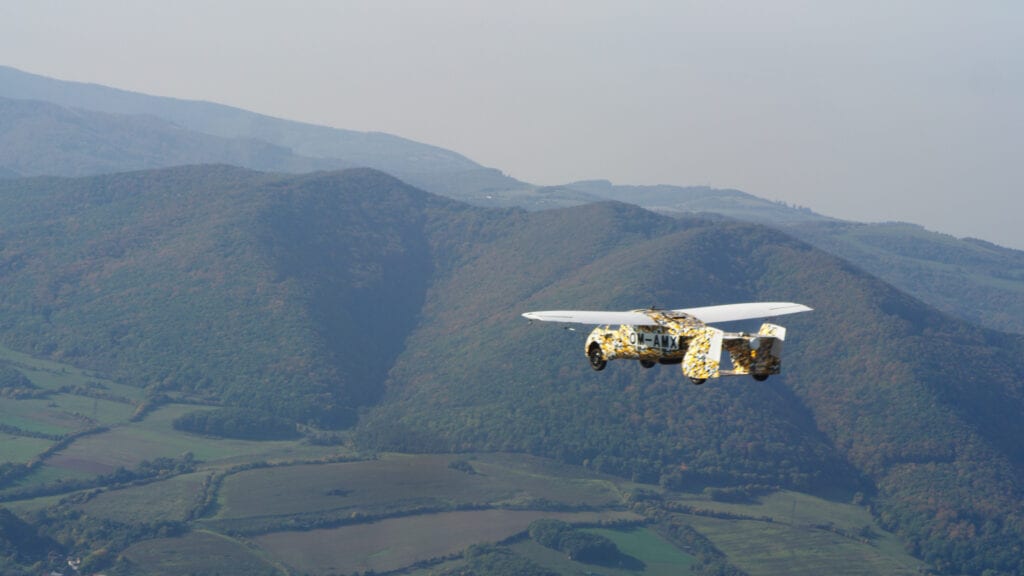
AeroMobil conducted successful flight tests for its flying car including achieving top and stall speeds, take off ability within 1,300 feet and climb rate of over 1,200 feet per minute. (AeroMobil)
AeroMobil conducted successful flight tests for its flying car including achieving top and stall speeds, take off ability within 1,300 feet and climb rate of over 1,200 feet per minute, the company announced in March 4. The flight tests are the next step to meeting CS23 requirements from the European Aviation Safety Agency (EASA).
AeroMobil began applying for an EASA type certification in December 2018, Patrick Hessel, CEO of AeroMobile, told Avionics International via email. The CS23 requirements are based off amendment five of the general aviation regulation with special conditions for using automotive components and systems.
“When designing AeroMobil 4.0 we gave careful consideration to the regulatory framework and felt it was critically important that our flying car could work within existing regulatory frameworks rather than be entirely disruptive,” Hessel said. “Many of the new electric Vertical-Take-Off-And-Landing (VTOL) models will require a complete or partial re-working of today’s regulations and we want to build a flying car that our customers have the freedom to use as soon as possible. We welcome the opportunity to use the latest regulations, which changed the certification requirements from prescriptive rules-based approach to one based on safety performance. It means we can use some of the automotive features to demonstrate how safe AeroMobil 4.0 is as an aeroplane for occupant safety and how we have introduced safety innovations in areas such as stall and spin.”

The AeroMobil is a two-seat vehicle and aircraft for personal and private transportation, Hessel said. The company will unveil a four-seat version in 2025 with a range of 700 miles that will support a regional mobility service. (AeroMobil)
AeroMobil is also seeking certification from the Federal Aviation Administration (FAA) in the U.S. where it will be certified using Part 23 requirements. Because AeroMobil is also a car, it will also be certified under the European Whole Vehicle Type Approval in the M1 category and under Federal Motor Vehicle Safety Standards with the National Highway Traffic Safety Administration in the U.S.
The AeroMobil is a two-seat vehicle and aircraft for personal and private transportation, Hessel said. The company will unveil a four-seat version in 2025 with a range of 700 miles that will support a regional mobility service.
“AeroMobil uses standard flight controls as any other general aviation aircraft,” Hessel said. “Our aim is to make AeroMobil familiar to pilots right from the beginning. In our cockpit, there is a transformative steering wheel/flight yoke, rudder pedals, and hand-operated throttle. Currently, we use Garmin avionics systems, but we are open to explore options in the future according to customer requirements.”
Hessel said AeroMobil will be commercially available in 2023.
“The successful performance of The AeroMobil in passing these critical governmental certification tests brings the commercialization of a new luxury supercar, equally at home in the air or on the road one step closer to reality,” Hessel said. “When it comes to market in 2023, it will be the coolest thing on four wheels ever commercialized, providing unlimited freedom of travel.”